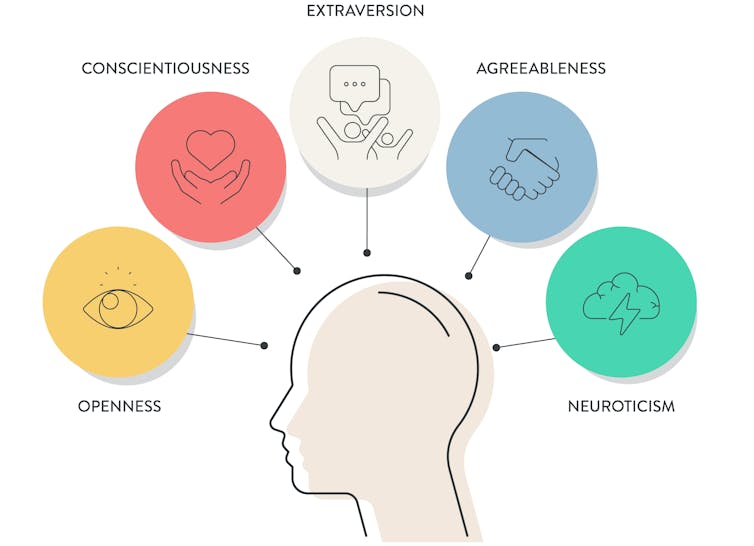Have you ever taken a personality test? If you’re like me, you’ve consulted BuzzFeed and you know exactly which Taylor Swift song “perfectly matches your vibe.”
It might be obvious that internet quizzes are not scientific, but many of the seemingly serious personality tests used to guide educational and career choices are also not supported by research. Despite being a billion-dollar industry, commercial personality testing used by schools and corporations to funnel people into their ideal roles do not predict career success.
Beyond their lack of scientific support, the most popular approaches to understanding personality are problematic because they assume your traits are static – that is, you’re stuck with the personality you’re born with. But modern personality science studies find that traits can and do change over time.
In addition to watching my own personality change over time from messy and lazy to off the charts in conscientiousness, I’m also a personality change researcher and clinical psychologist. My research confirms what I saw in my own development and in my patients: People can intentionally shape the traits they need to be successful in the lives they want. That’s contrary to the popular belief that your personality type places you in a box, dictating that you choose partners, activities and careers according to your traits.
What personality is and isn’t
According to psychologists, personality is your characteristic way of thinking, feeling and behaving.
Are you a person who tends to think about situations in your life more pessimistically, or are you a glass-half-full kind of person?
Do you tend to get angry when someone cuts you off in traffic, or are you more likely to give them the benefit of the doubt – maybe they’re rushing to the hospital?
Do you wait until the last minute to complete tasks, or do you plan ahead?
You can think of personality as a collection of labels that summarize your responses to questions like these. Depending on your answers, you might be labeled as optimistic, empathetic or dependable.
Research suggests that all these descriptive labels can be summarized into five overarching traits – what psychologists creatively refer to as the “Big Five.”
As early as the 1930s, psychologists literally combed through a dictionary to pull out all the words that describe human nature and sorted them in categories with similar themes. For example, they grouped words like “kind,” “thoughtful” and “friendly” together. They found that thousands of words could be accounted for by sorting them between five traits: neuroticism, extroversion, conscientiousness, agreeableness and openness.

Personality traits can be sorted into the ‘Big Five’ categories. They describe how you act but not necessarily the essence of who you are.
Whale Design/iStock via Getty Images Plus
What personality is not: People often feel protective…



